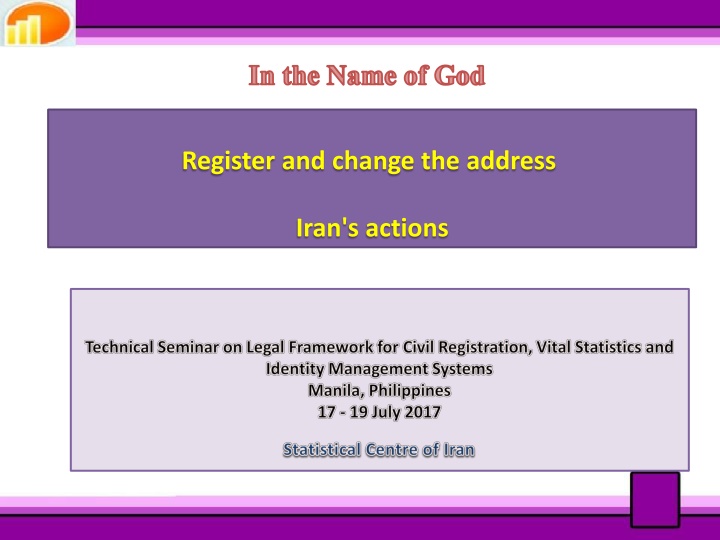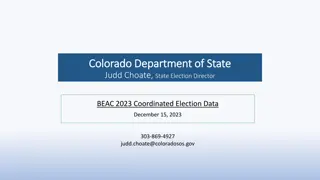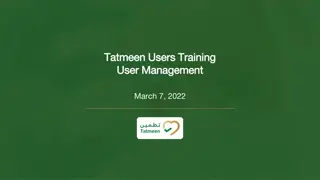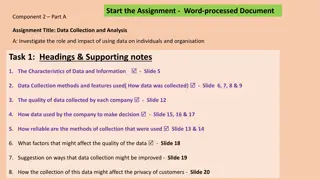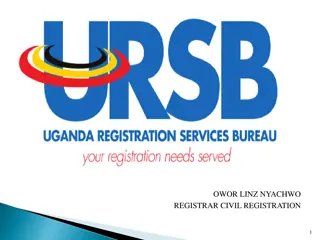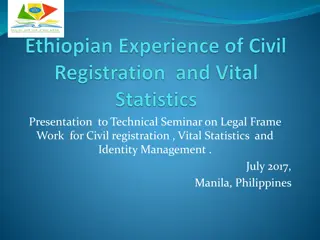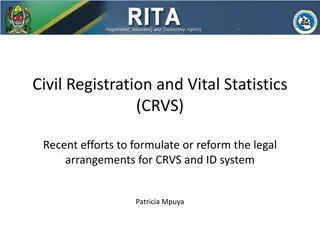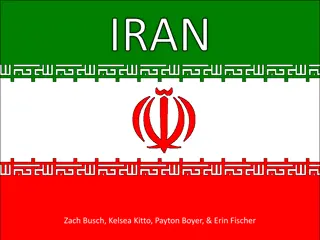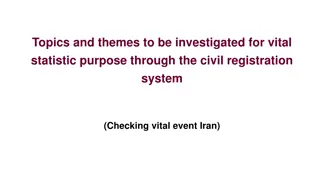Address Registration System in Iran: Modernizing Data Collection
The use of continuous administrative data, implementation prerequisites, legal framework, e-government initiatives, and regulations for national number allocation and address registration system in Iran are detailed in this content.
Download Presentation

Please find below an Image/Link to download the presentation.
The content on the website is provided AS IS for your information and personal use only. It may not be sold, licensed, or shared on other websites without obtaining consent from the author.If you encounter any issues during the download, it is possible that the publisher has removed the file from their server.
You are allowed to download the files provided on this website for personal or commercial use, subject to the condition that they are used lawfully. All files are the property of their respective owners.
The content on the website is provided AS IS for your information and personal use only. It may not be sold, licensed, or shared on other websites without obtaining consent from the author.
E N D
Presentation Transcript
www.iranphe.ir In the Name of God Register and change the address Iran's actions
Introduction In fact, the use of continuous administrative data is the best way to obtaining up to date statistics, which, of course, has the prerequisites for implementation. One of the main prerequisites for using the register base method to collect data and provide services is the use of address registration.
E-government and address registration system The e-government is to transform the government and the process of managing the country more accessible, more efficient And providing information and services to citizens and other public institutions using ICT without any time or place restrictions. One of the e-government infrastructure is the allocation a national number and a postal code to individuals and the establishment of a address registration system These days, Iran is moving from collecting information from traditional to modern. For example, census implementation has cost a lot of time and expenses and now the government and organizations are working together to create a systematic network of information for different needs as well as Increasing the coverage and quality of information and data.
Administrative Regulation of the low obligation to allocation a national number and a postal code for all Iranian nationals (fourteen articles( Review In 1997, by the Islamic Consultative Assembly In 1999, by the state with fourteen articles According to this law, the electronic information infrastructure, the completion of the population database and the notification of the national number and the postal code to the people and goverments were submitted to the civil registration organization (with the cooperation of the post company).
Administrative Regulation of the low obligation to allocation a national number and a postal code for all Iranian nationals (fourteen articles( Different articles of this law in total: *The government is required to create for all national cards with a postal code matching the specified location. *The owner of the card is required to change the location of the residence or change any of the items of identification card or the end of validity of the card to change their national identification card.
Administrative Regulation of the low obligation to allocation a national number and a postal code for all Iranian nationals (fourteen articles( *All organizations are required to organize their databases in such a way that each person with a national number and a postal code is identified in all relevant systems. *Providing services that requires individual information are depends on obtaining the postal code number associated with the place(location of the individuals). and etc...
Intelligent National Card The concept of electronic identity, derived from the identity of the individual and his place of residence, is one of the most important e- government infrastructure. In Iran Intelligent National Card has been created with this goal. In the field of population registration, National Intelligent Cards also provide online population statistics, and a new registration system Since 2011 many national smart cards have been produced for Iranians.
The law of registration of the address in the country According to the law, if the address of the residence of each indivdual is changed, it should inform the local civil registry office as soon as possible. Persons authorized to announce address change: members aged 15 or more. Time Limit: It is up to 15 days after the transfer to announce the change of address. www.iranph.ir
Challenges *Iran has taken a lot of steps to get registered statistics, but there are still plenty of work to do. *Complete the project's legal address as the key to entering e-government . *Creating new and effective low for example Drafting laws and informing people to register and change addresses and set clear and transparent cash and non-cash fines. *Create and expand unique postal code for all locations in the country. www.iranph.ir
